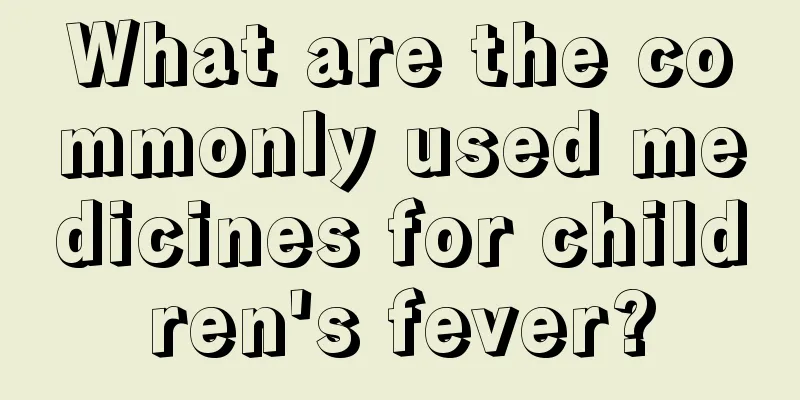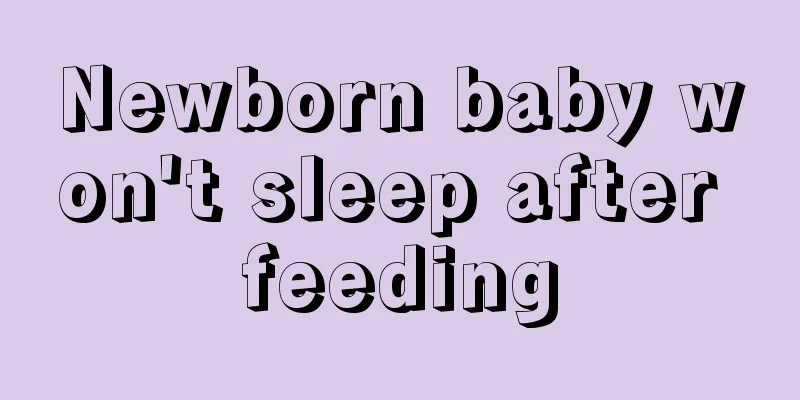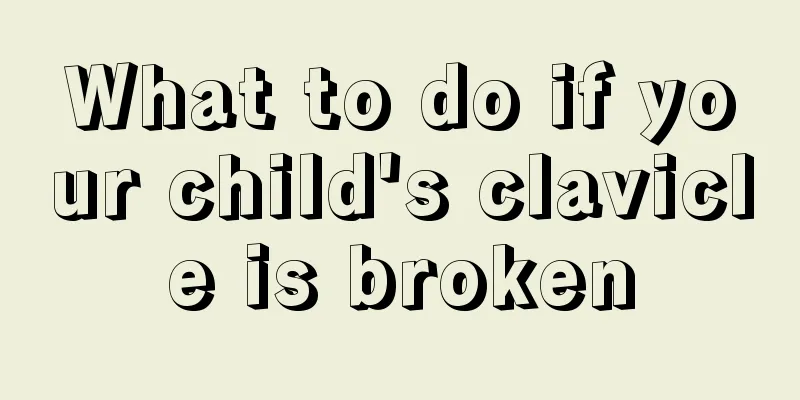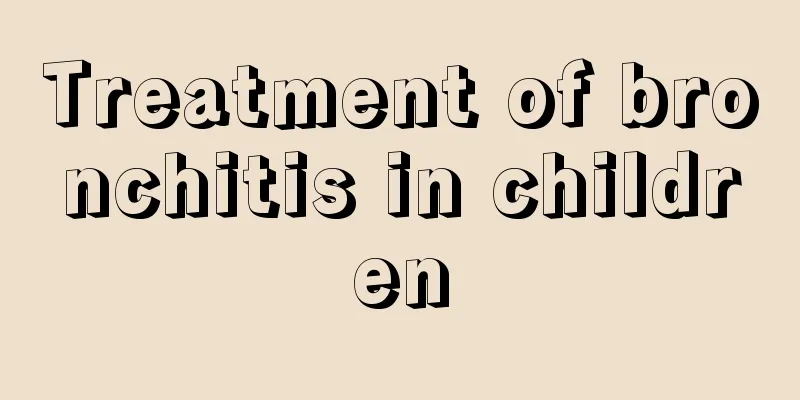What are the commonly used medicines for children's fever?

|
Fever in young children is self-limiting and generally will not endanger the child's life. When fever occurs, the body temperature should be monitored in time. As long as it does not exceed 38.5 degrees, physical cooling can generally be performed. Of course, if it exceeds 38.5 degrees, this indicates a high fever state and must be treated with medication in time. There are many such drugs, such as aspirin, paracetamol, ibuprofen and other drugs. 1. Aspirin It is an ancient antipyretic drug that has been used since 1899. It has a strong antipyretic effect, but it has serious side effects, mainly gastrointestinal bleeding and thrombocytopenia. The most serious side effect is Reye's syndrome, with a mortality rate of 30%. The UK has clearly stipulated that aspirin is prohibited for children under the age of 16. Currently, this drug is being phased out in domestic pediatrics. 2. Acetaminophen That is, paracetamol, which is a relatively safe antipyretic drug. It has no gastrointestinal irritation or bleeding, does not affect platelet function, has no nephrotoxicity, and will not cause granulocytopenia and aplastic anemia. Its antipyretic effect is proportional to the dose, but excessive doses can cause liver toxicity. This drug is recommended by the World Health Organization (WHO) as the first choice antipyretic drug for high fever in infants and children over 2 months old. The dosage is 10-15 mg per kg of body weight, once every 4-6 hours. It is currently sold in all hospitals and large pharmacies. Representative drugs include Children's Motrin Syrup, Children's Baifuning Drops, etc. 3. Ibuprofen Nonsteroidal anti-inflammatory drugs have obvious antipyretic and analgesic effects with few side effects. The drug takes an average of 1.16 hours to take effect in reducing fever, and lasts nearly 5 hours on average. The average temperature drop is 2.3 degrees, with a percentage drop of 88%. Pediatric experts believe that this product can replace intramuscular injection of antipyretics and is suitable for children with high fever caused by infectious diseases. Ibuprofen is suitable for children over 6 months old, with a dosage of 5 to 10 mg per kilogram of body weight, once every 6 to 8 hours. It is currently sold in all hospitals and large pharmacies, and representative drugs include Thorne oral solution, etc. 4. Bupleurum injection It is an injection extracted from the traditional Chinese medicine Bupleurum. The drug has a slow and weak antipyretic effect and few side effects. The specification is 2 ml per vial. For children under 3 years old, 1/3 to 1/2 vial should be injected intramuscularly each time, and for children over 4 years old, one vial should be injected each time. 5. Nimesulide Granules This product is a non-steroidal anti-inflammatory drug with anti-inflammatory, analgesic and antipyretic effects. It can be used to treat chronic joint inflammation (such as rheumatoid arthritis and osteoarthritis); pain and inflammation after surgery and acute trauma; pain caused by otolaryngitis; dysmenorrhea; fever caused by upper respiratory tract infection and other symptoms. |
<<: How to choose a baby carrier?
>>: What to do if your child has diarrhea
Recommend
Why do newborn baby's nails turn black?
The baby's health is the biggest concern of t...
One year old baby's mouth rash
In the eyes of outsiders, baby drooling is a cute...
Acne on the child's head
If you find that your child has acne on his/her h...
How to cultivate children's imagination
A child’s imagination is very important, even mor...
What department should children go to for knee pain?
Since many parents do not care about their childr...
What should I do if my child has tooth decay caused by feeding bottle?
Many parents will let their babies sleep with a b...
Can a two-year-old baby clean earwax?
When babies are young, their movements are uncont...
What are the symptoms of liver function in children?
Children's liver function should be the most ...
How to correct children's hunchbacks? Parents need to pay attention
If a child has a hunchback, parents should prompt...
Ten month old baby does not sleep during the day
We all know that baby sleep is very important and...
How to treat constipation in children?
Children nowadays are the treasures of the family...
Does your child have ingrown feet?
It is a very common phenomenon for children to ha...
What is missing when children are active?
As children grow up, they will be full of curiosi...
Treatment of spitting up in one-month-old baby
The birth of every new life makes our parents ver...
6 Disadvantages of Elderly People Raising Children
Society is developing rapidly, and the educationa...









